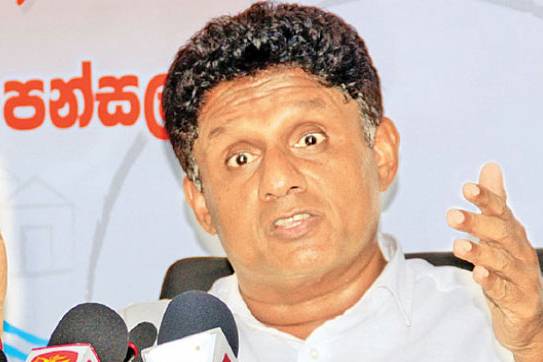Sri Lanka’s much hyped Model Villege Programme is flushing tax payers’ rupees down the drain dashing hopes of Housing Minister Sajith Premadasa who tried to gain some political mileage out of it.
To bring the dream home to a reality of families who have no land and house of their own, this model village programme is being implemented by the National Housing Development using state funds given by the General Treasury.
Under this, the beneficiary family will receive the title of a state owned land and a new house should be built in that land using the loan granted by the Government.
The Auditor General’s Department, has made a startling revelation relating to the performance of the housing programme highlighting financial irregularities and short comings of the Ministry headed by Sajith Premadasa.
Even though provisions of Rs.1.17 billion had been made for the project in the year 2017/2018 under review, only a sum of Rs.815 million out of that had been utilized, the report revealed.
A number of 3,500 houses had been expected to be constructed in the year under review. However, only 205 houses out of that target, representing 6 per cent had been completely constructed by the end of the year.
Accordingly, the performance of the programme had been at a weak level, Auditor General classified.
A loan of Rs. 400,000 at 5% annual interest rate will be given for the beneficiaries whose monthly salary income is Rs.25, 000 or less than that by considering the ability to repay and their preference and the relevant loan will be recovered in 5 or 10 years.
Besides that, in granting loans under the model village programme, a loan of Rs.400,000 will be given for the government and semi government officers whose monthly salary is Rs.45,000 or less than that and the said sum will be recovered in 5 or 10 years at annual interest rate of 5%.
The loan disbursement and recovery process is not up to the standard of financial regulations and it is not transparent .
(LI)

